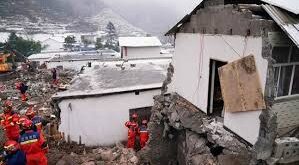Each year on December 1, the world comes together to commemorate World AIDs Day.
Since 1988, this has been a day when people mourn the loss of their loved ones while reflecting on improvements, innovations and the way forward in forging an Aids-free generation.
As the world comes together to commemorate World Aids Day, world leaders had this to say:
SADC Executive Secretary Dr Stergomena Lawrence Tax
Each year on the 1st of December, the Southern African Development Community (SADC) joins the international community in commemorating World AIDS Day. This is an opportunity for us to show support to our brothers and sisters living with HIV and remember those who have died from AIDS-related illnesses.
Today, World AIDS Day is being commemorated under peculiar circumstances as humanity is faced with the unprecedented Covid-19 pandemic which has devastated communities, destroyed economies worldwide and threatens the gains made in the fight against HIV and AIDS over the past decades.
This year, World AIDS Day is being commemorated under the theme ‘Global solidarity, shared responsibility” to remind us of the important task to ensure that each person living with HIV or is vulnerable to HIV has access to the care they need. More importantly, governments and all stakeholders have the responsibility of working together and putting people at the centre of their programmes by implementing human rights and gender responsive strategies that will leave no one behind and help to end AIDS and the COVID-19 pandemic.
Notwithstanding the challenges faced during the year, and in line with the regional and global commitments, SADC Member States have continued to implement effective strategies to fight HIV and AIDS. A number of Member States have achieved the 90-90-90 fast track targets and few more are close to achieving this significant milestone. It is important to underscore that one SADC Member State has achieved the 95-95-95 target, well ahead of the deadline for achieving the target in 2030. Such achievement demonstrates the strong commitment of SADC Member States to build an HIV-free generation for the effective development of the region.
May I take this opportunity to remind the SADC community and the wider community that the fight against HIV, which has been affecting our lives for more than 30 years, must not be overlooked. More than ever we must increase our collaborative efforts and mobilise enough resources to ensure that we sustain and consolidate the remarkable gains made in the fight against HIV and AIDS in the context of COVID-19 in order to end AIDS by 2030.
As we commemorate this day, I congratulate Member States and all stakeholders for the unflinching solidarity they have demonstrated from the onset of the COVID-19 pandemic almost nine months ago, which has ensured that HIV and other health services are not disrupted due to the challenges posed by this pandemic.
United Nations Secretary-General António Guterres
Thirty-five years since the emergence of AIDS, the international community can look back with some pride but we must also look ahead with resolve and commitment to reach our goal of ending the AIDS epidemic by 2030.
There has been real progress in tackling the disease. More people than ever are on treatment. Since 2010, the number of children infected through mother-to-child transmission has dropped by half. Fewer people die of AIDS-related causes each year. And people living with HIV are living longer lives.
The number of people with access to life-saving medicines has doubled over the past five years, now topping 18 million. With the right investments, the world can get on the fast-track to achieve our target of 30 million people on treatment by 2030. Access to HIV medicines to prevent mother-to-child transmission is now available to more than 75 percent of those in need.
While there is clear progress, gains remain fragile. Young women are especially vulnerable in countries with high HIV prevalence, especially in Sub-Saharan Africa. Key populations continue to be disproportionately affected by HIV. New infections are on the rise among people who inject drugs as well gay men and other men who have sex with men. The AIDS epidemic is increasing in Eastern Europe and Central Asia, fuelled by stigma, discrimination and punitive laws. Globally, people who are economically disadvantaged lack access to services and care. Criminalization and discrimination foster new infections each day. Women and girls are still especially hard hit.
The 2030 Agenda for Sustainable Development was adopted with a promise to leave no one behind. Nowhere is this more important than in tackling AIDS. Supporting young, vulnerable and marginalized people will change the course of the epidemic. The UNAIDS strategic framework is aligned with the SDGs, which highlight how the work against HIV is linked to progress in education, peace, gender equality and human rights. I am proud to see how the United Nations and UNAIDS, under the leadership of Michel Sidibé, are committed to finding new and better approaches to end this epidemic.
During its first decade, affected groups refused to accept inaction, mediocrity and weakness in the AIDS response.
Their courage drove progress on securing women and children’s health, lowering the costs of lifesaving drugs and giving voice to the voiceless. We must all join together in that same uncompromising spirit. On World AIDS Day, I salute the tireless effort of leaders, civil society, colleagues in the UN and the private sector to advance this cause.
As I prepare to complete my tenure as Secretary-General, I issue a strong call to all: let us recommit, together, to realizing our vision of a world free of AIDS. Nhau/Indaba
 Nhau News Online News that is accurate, reliable, trustworthy!!
Nhau News Online News that is accurate, reliable, trustworthy!!
